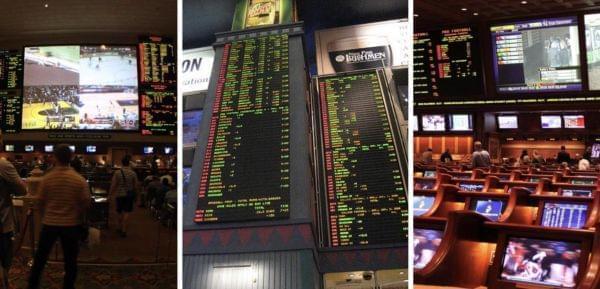Report: Legalizing Sports Betting In Illinois

A legal market where the state regulates and taxes sports betting could bring close to $12-billion in wagers, create 2,500 jobs and generate up to $100 million in tax revenue. Illinois Economic Policy Institute and the Project for Moddle Class Renewal at the University of Illinois at Urbana-Champaign
Illinois lawmakers are considering whether to legalize sports gambling. They’re still negotiating the details - -but a recent analysis shows the state could benefit from allowing the practice—sooner than later.
A legal market where the state regulates and taxes sports betting could bring close to $12 billion in wagers. That’s according to a report by the Illinois Economic Policy Institute and the Project for Middle Class Renewal at the University of Illinois at Urbana-Champaign.
Robert Bruno, a professor at the UIUC School of Labor and Employment Relations and director of the Project for Middle Class Renewal, said 10 states have already legalized sports gambling in the last year, but none are in the Midwest. “There is some advantage to be the first mover, so Illinois may want to be out of the box first. Obviously that incentivizes taking action," he said.
But there is still debate on how it could impact gambling addiction.
Frank Manzo, policy director for the Illinois Economic Policy Institute, said sports betting already exists in the black market, and regulating it could help with those concerns. “People are doing it anyway, and legalizing sports betting, which is an economic activity that has been approved by the U.S. Supreme Court, would bring those bettors into a safe and regulated marketplace.”
Bruno said their analysis estimates up to $100 million annually in state tax revenue, which could not only go toward infrastructure or public education, but also toward funding gambling addiction programs.
Lawmakers have hinted that sports betting could help pay for a construction plan, and Gov. J.B. Pritzker has said it shoulsn't be overlooked. But a plan has yet to be formally introduced this year.
In the past, tax revenue estimates have varied. Bruno and Manzo say a definite number can't be pinned down until lawmakers figure out the rate at which wagers can be taxed. They say that number should not be too high, or there is a risk of keeping bettors in the black market.
According to the report, legalization could also help create up to 2,500 jobs.
Last year the U.S. Supreme Court decided to allow sports gambling outside of Nevada, prompting Illinois lawmakers to hold hearings on the subject.

